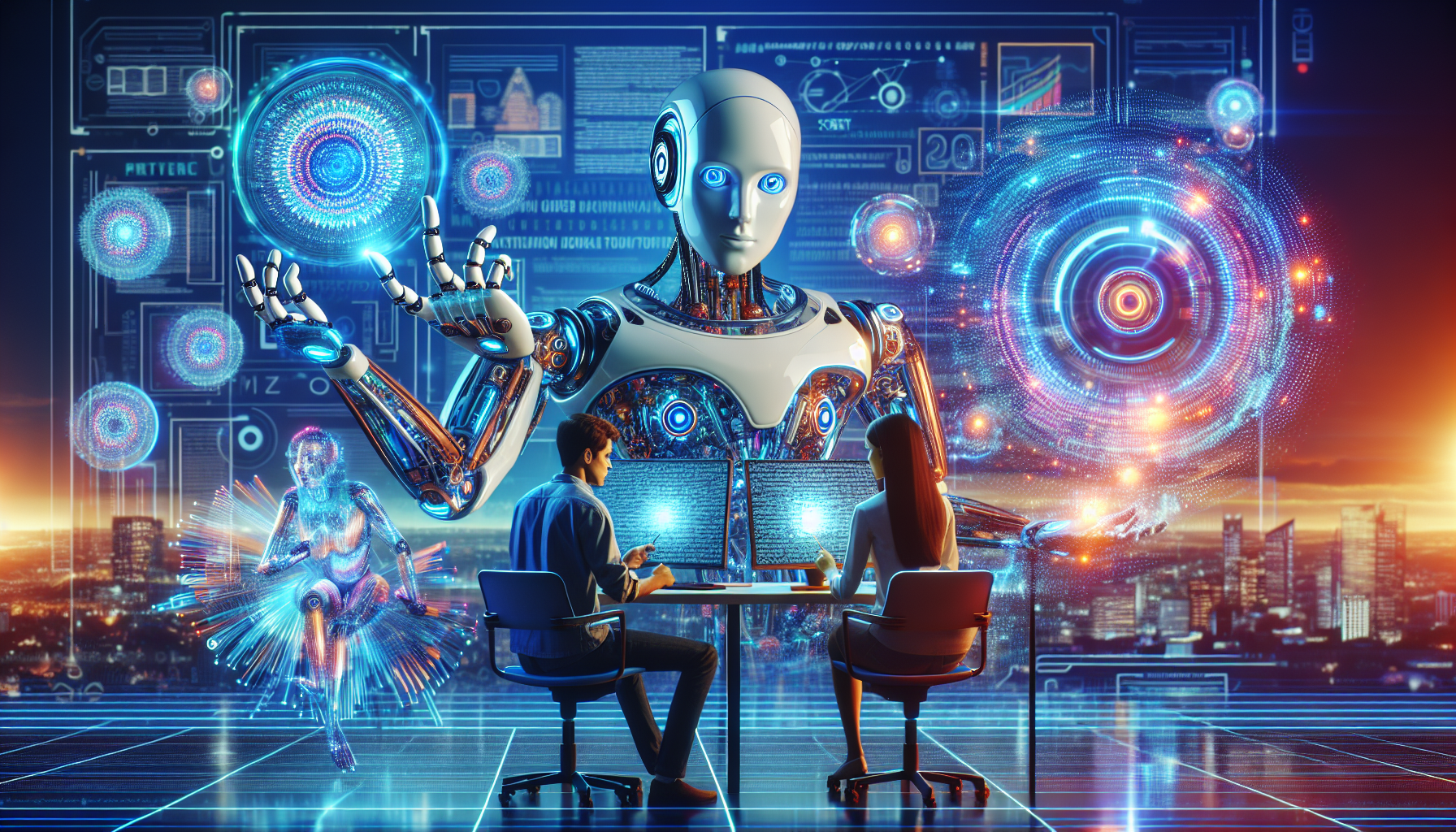
Welcome, dear reader, to the brave new world of screenwriting, where scripts are no longer the brainchildren of caffeine-addicted writers burning the midnight oil. Instead, they are the output of high-octane algorithms that might just prefer an energy-efficient LED glow. Yes, we’re diving into the glitzy, glamorous, and slightly unsettling realm of Artificial Intelligence in screenwriting.
Psst…Who’s That Typing?
Imagine this: you’re at a chic Hollywood party, and in walks a character who doesn’t sip on champagne or crack awkward jokes. Instead, it’s a laptop with an annoyingly bright on button, coding away furiously. Meet your new screenwriter! AI isn’t just the nerdy kid in the back of the tech classroom anymore—it’s here to scribble some moving drama, side-splitting comedy, and dare we say, complex plot twists.
But wait, you say—surely a machine can’t grasp the subtleties of human emotion? Ah, my cinematic friend, you’d be surprised. AI has evolved from struggling with basic human grammar to mastering the art of dramatic pauses and plot structure. Yeah, it’s practically Shakespeare with WiFi!
The Algorithm Behind the Curtain
So, how does it work, you ask? Enter the realm of Natural Language Processing (NLP), where words are broken down into binary codes, processed by neurons (well, not actual neurons, but give the techies some creative leeway), and reassembled into dialogue that might just make you weep or laugh uncontrollably. Fancy, huh?
Artificial Intelligence uses vast amounts of data—think mountains of scripts, dialogues, genre-specific story arcs—to understand what concocts a compelling narrative. It’s like feeding your AI writer a binge-watch of every TV show and movie ever, and then waiting to see what comes out the other end. Kind of like making good soup, but with pixels. And surprise, surprise, it’s getting pretty darn good at it.
What Does This Mean for the Human Muse?
Alright, here comes the part where we balance on the edge of existential dread—are our beloved screenwriters becoming obsolete? Is this AI overlord about to render them as outdated as VHS tapes? Well, here’s the scoop: not quite.
AI is more of a collaborator than a replacement. Think of it as that quirky co-writer who never tires, never needs a bathroom break, and doesn’t bogart all the snacks. Human writers can use AI to generate ideas, smooth out dialogue, or even finish that pesky scene four. While AI can weave complex narratives, it still requires the human touch to infuse the story with genuine emotion and creativity—elements that are still (thankfully) uniquely human.
AI Bloopers: A Comedy of Errors
For all its prowess, AI still has its “bless its heart” moments. The sheer hilarity of some AI-generated scripts cannot be overstated. Think unintentional sci-fi rom-coms or action sequences where the hero’s only move is to repeatedly jump out of windows. Screenwriters and tech enthusiasts alike have a treasure trove of AI gaffes, each as gloriously off-the-mark as the last. These hiccups serve as a reminder that, while AI is powerful, it’s also predictably prone to delightful absurdities.
The Future: A Jointly Authored Blockbuster?
The future of screenwriting looks to be an exciting and collaborative venture between man and machine. Imagine blockbuster hits birthed from this duo—a perfect blend of ceaseless creativity and tireless precision. Writers will have more tools than ever to overcome writer’s block, refine plots, and even translate their visions into different languages, all without so much as a change of pajamas.
So, here’s to the next frontier in storytelling—an adventure where human ingenuity and artificial intelligence coalesce into the cinematic equivalents of peanut butter and jelly. Just remember, whether it’s the heartfelt drama of a rom-com or the edge-of-your-seat thrill of a heist film, there’s room for both human wit and processor speed at the writers’ table.
May your scripts be ever pithy and your algorithms ever witty!






